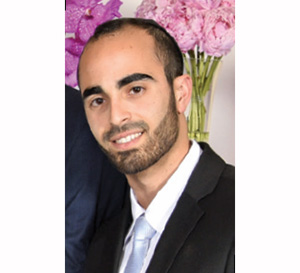
We’re all very familiar with the idea of peer pressure, associating with the right people, distancing from negative influences, etc. Where does this “pressure to conform” really come from?
In this week’s parsha we are told: “You shall not make idols for yourselves” (Vayikra 26:1), upon which Rashi, quoting from the Torat Kohanim, writes: This is addressed to a Jew who has been sold to a non-Jew as a slave, that he should not say, “Since my master is involved in illicit relations I will also be like him; since my master serves idols I will also be like him; since my master desecrates Shabbat I will also be like him.”
This Torat Kohanim is difficult to understand: Why in the world would a Jew say to himself that he would want to be like his master who is involved in terrible transgressions, and where does this seeming impulse come from?
Rav Henoch Leibowitz introduces a novel idea about the science of influence. The Rambam (Hilchot De’ot 6:1) writes that it’s a person’s nature to have his values and actions be influenced by his friends and associates and to follow the norms of his region. Says Rav Henoch, based on this Rambam we are used to thinking that we are influenced through intellect, in that a person’s values and beliefs are influenced based on his friends’ values and beliefs. And therefore, we think that there’s no need to fear getting influenced negatively if we strongly and firmly understand that our friends’ beliefs and values are contrary to truth. However, we see from this Torat Kohanim that there is another level of being influenced that is more emotionally based, in that in the deep recesses of a person’s heart one desires to fit in with the people of his surroundings, to be “part of the chevra” he is with. Therefore, a person is susceptible to being influenced by the people of his surroundings even if he understands quite well that they are not acting correctly and that he should not behave like them. (Chiddushei Halev, Behar).
I thought to suggest that Rav Henoch’s idea of an emotional influence and the natural desire to fit in are implicit in the words of the Torat Kohanim. The Jewish slave doesn’t just say to himself that he wants to act the way his master is acting, but rather that he wants to “be like him.” Not that he wants to think or believe like him, but simply to be “like him”: to fit in, to be one with his surroundings. We’re trained to think that peer pressure is because of low self-esteem, being made fun of, ideological influence, lack of personal identity, a weak grasp on one’s personal values, etc. But really there is a nature within each of us that is much more simple and instinctive: there is a deep-needed desire to simply “fit in,” to “be like” the rest of the crowd we associate with. It doesn’t need to be so sophisticated and complex: it’s just our nature.
This concept presents both a high risk and also high dividends. Even if one thinks he or she is strong-minded in their values, and even if one thinks one’s children are imbued with those values, there is still a real danger of nevertheless being influenced by one’s surroundings due to the natural tendency we have to be like the rest of the people. On the other hand, this nature is a tremendous gift: if one wants to be positively influenced, although the main way is to personally work very hard to grow in Torah and character improvement, there is another aspect, which is to simply mingle with righteous people: to be around positive influences, to hear the way they speak, to see the way they act. This will inspire you and channel your need to fit in, in a beneficial way. Additionally, on the flip side, some people may get overly concerned with trying to inspire others and unnecessarily stress themselves out. Such people shouldn’t forget that simply by being a good influence, others who interact with you will desire to be like you.
So you might be thinking: the high dividends part sounds rather simple to implement, but how do we stay safe from the high risk part? If part of being influenced is natural, and having strong knowledge of what is right and wrong may not always help, from where do we derive the fuel to keep our instincts controlled, aware and safe from being pulled in?
Stay tuned…
By Binyamin Benji
Binyamin Benji learns in Yeshivas Rabbeinu Yitzchak Elchanan. He holds an MSW, and is the author of the weekly Torah Talk in the Sephardic Congregation of Paramus’ newsletter. He can be reached at [email protected].










